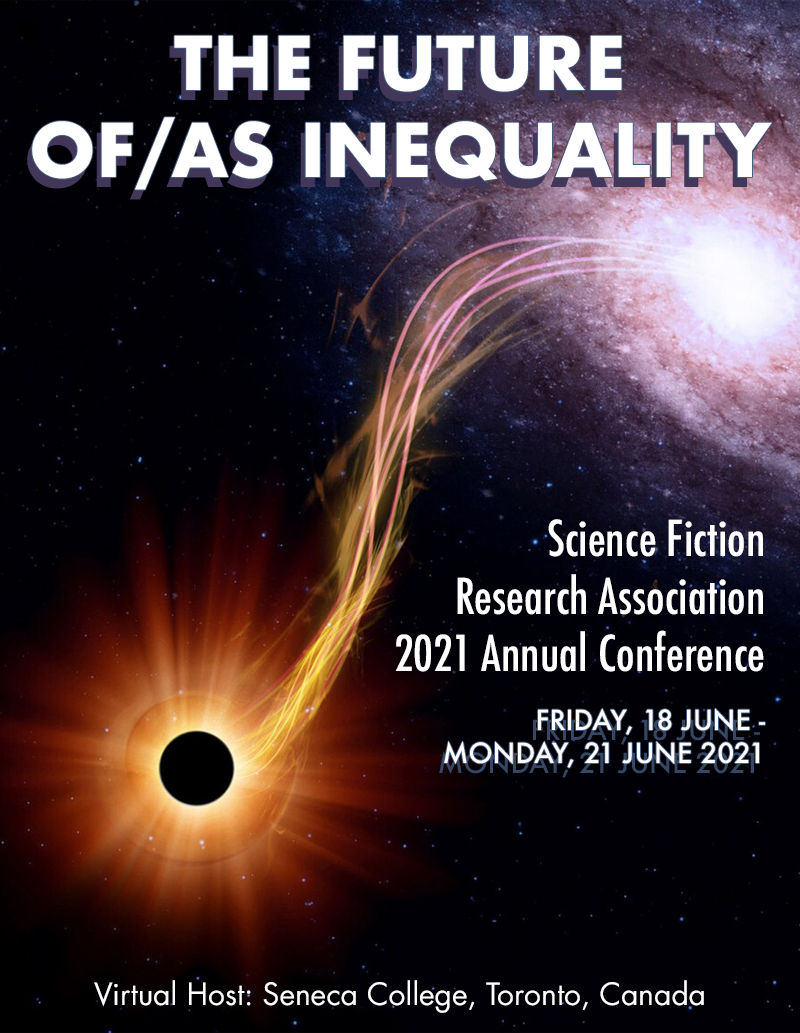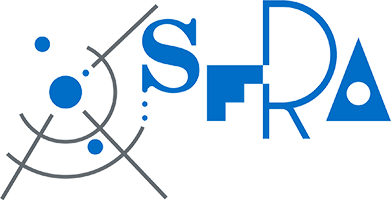SFRA 2021
The Future of/as Inequality
18 June – 21 June 2021
Virtual Host: Seneca College
Toronto, Canada – Held Online
Keynote Speaker:
Madeline Ashby
[Company Town, How to Future: Leading and Sensemaking in an Age of Hyperchange, Machine Dynasty series]
Keynote Speaker:
Dr. Joy Sanchez-Taylor
[Diverse Futures: Science Fiction and Authors of Color]
Keynote Speaker:
Dr. Lars Schmeink
[Biopunk Dystopias: Genetic Engineering, Society and Science Fiction; The Routledge Companion to Cyberpunk Culture, Cyberpunk, and Visual Culture]
Special Guest:
Aisha Matthews
[The MOSF Journal of Science Fiction; Director of Literary Programming for the Museum of Science Fiction’s annual Escape Velocity Conference]

Organizer and EC Statement on SFRA 2021
The Science Fiction Research Association recognizes and rejects the structural inequities that led the conference organizing board and executive committee to select a keynote lineup for its 2021 conference on the theme of the future of inequality that does not reflect the diversity of the field or of our membership. We are committed to addressing this error in three forms.
First, with respect to the conference itself, we are seeking additional keynote speakers and will have an update on that soon.
Second, we are seeking workshop leaders to help the organization work through its own ongoing relations of inequality, who, like the keynotes, will be compensated for their time and effort. We as the executive committee also commit to doing the labor necessary to ensure that the conference is equitable and inclusive in content and form, not simply in the realm of good intentions.
Third, we will hold an open meeting at the conference on ways to implement new procedures to reform the way we select both the executive committee and our conference sites and themes to prevent anything similar from happening again.
We apologize to the community for the pall this fundamental and inexcusable error casts over our upcoming meeting and commit to transforming the organization to be a more diverse and inclusive space for all. Thank you to all those who spoke up and held us accountable. We hope this can be the start of necessary and generative conversations.
